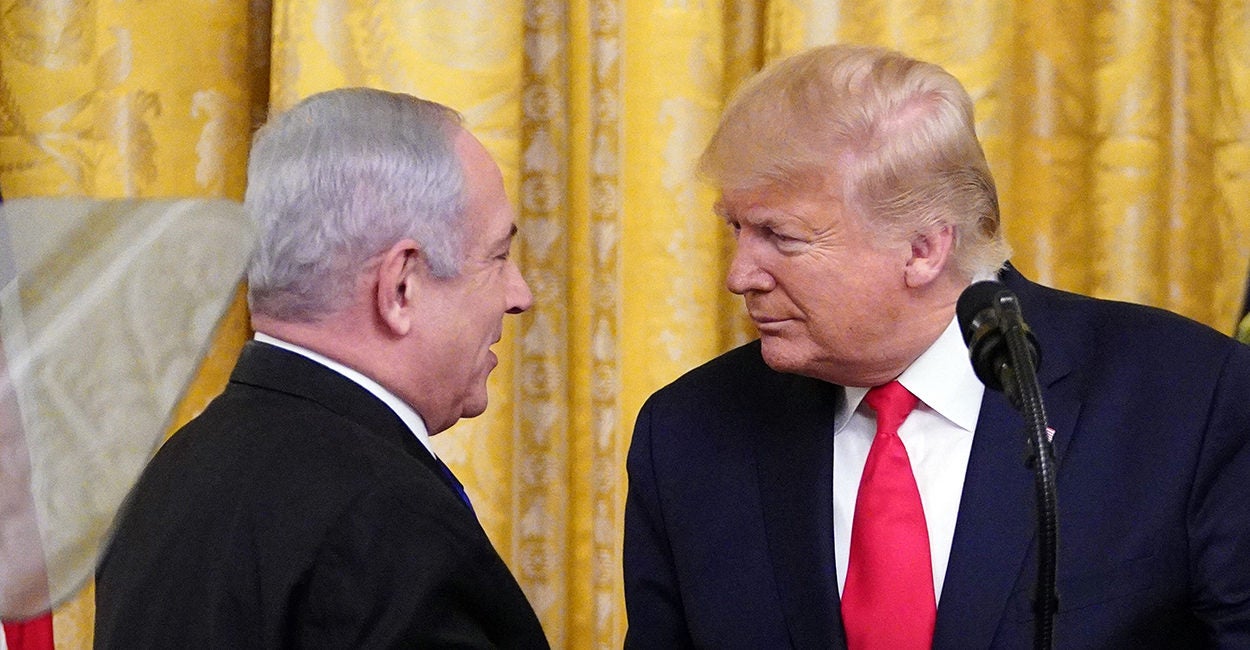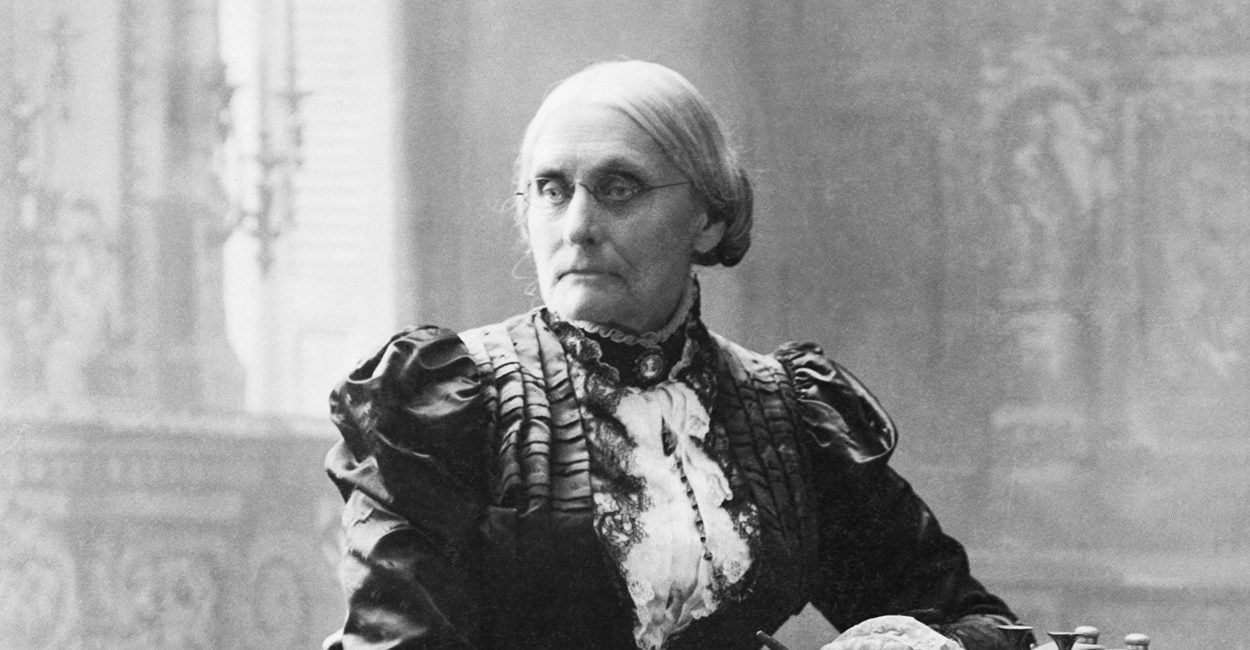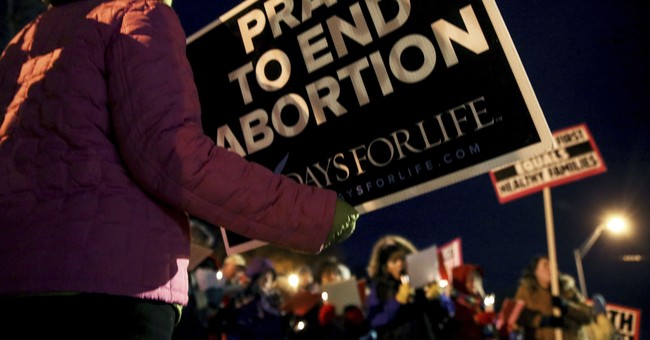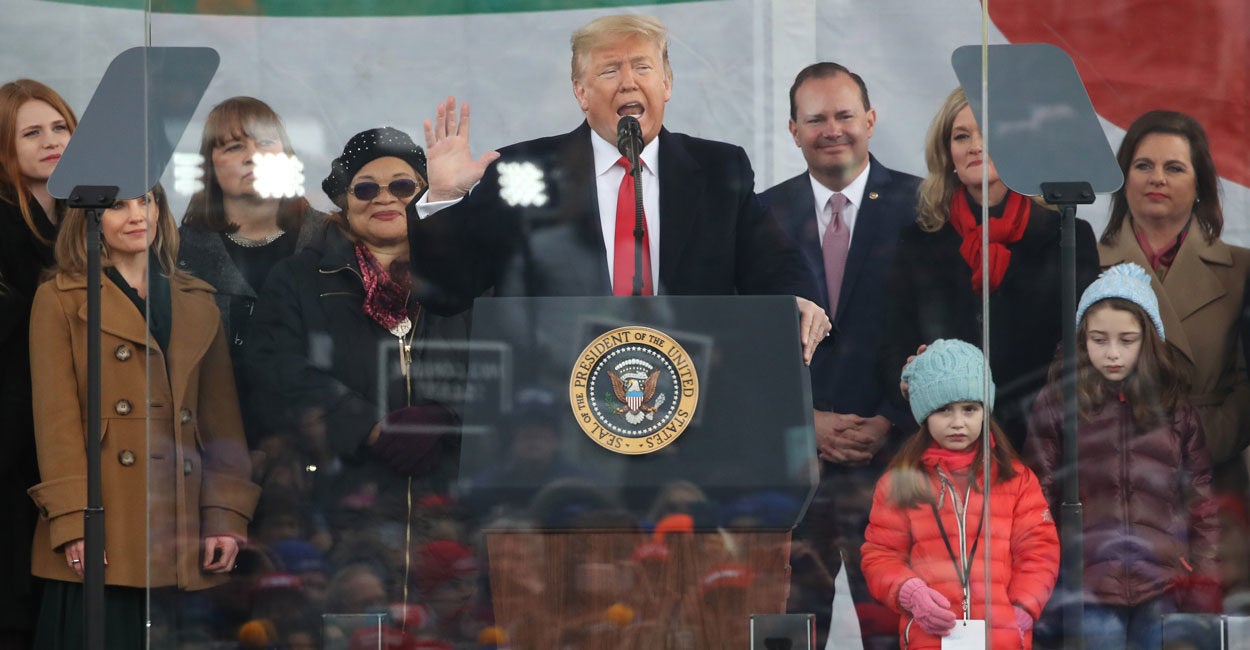President Donald Trump unveiled his long-awaited Israeli-Palestinian peace plan on Tuesday at a White House ceremony attended by Israeli Prime Minister Benjamin Netanyahu.
Trump declared that the plan “presents a ‘win-win’ opportunity for both sides, a realistic two-state solution that resolves the risk of Palestinian statehood to Israel’s security.” Netanyahu enthusiastically embraced Trump’s vision, proclaiming, “It’s a great plan for Israel. It’s a great plan for peace.” He then lauded Trump as “the greatest friend that Israel has ever had in the White House.”
Indeed, Trump’s vision for peace is the most pro-Israeli peace initiative ever promoted by the United States. It accords a high priority to Israeli security needs, recognizes Israel’s vital interest in retaining control of the border with Jordan, and clears the way for U.S. recognition of Israeli sovereignty over many settlements and Jewish holy sites in the disputed territory of the West Bank.
Trump’s vision also includes important benefits for Palestinians, who were offered the opportunity to build a state of their own, supported by a $50 billion regional development plan for the Palestinian territories and nearby Arab states. More than half of the $50 billion would be invested in infrastructure and business projects in the Palestinian territories in the first 10 years, with the remainder invested in Egypt, Jordan, and Lebanon. This economic program, which has been compared to the Marshall Plan through which the U.S. helped stabilize western Europe after World War II, would boost prosperity among Palestinians, free them from dependence on foreign handouts, and give their children hope for a much brighter future.
Despite the economic benefits and the diplomatic pathway to a Palestinian state offered by the initiative, Palestinian leaders immediately rejected the plan.Palestinian Authority President Mahmoud Abbas denounced Trump’s “deal of the century” as the “slap of the century.” Trump’s vision fell far short of the Palestinian Authority’s maximal demands for a sovereign state controlling all the territory in the West Bank and Gaza, with a capital in East Jerusalem, and recognition of the “right of return” for millions of Palestinian refugees to Israel.
But those demands were always unrealistic and posed unacceptable risks to Israeli security.
The Trump peace initiative envisions a smaller Palestinian state composed of Gaza, approximately 70% of the West Bank, and specified land swaps of Israeli territory along its borders with Egypt and the northern West Bank. To mitigate the security risks to Israel of such a state, the Palestinians would be required to renounce terrorism, disarm Hamas and other terrorist groups, recognize Israel as a Jewish state, and halt payments to the families of Palestinians imprisoned or killed due to their participation in terrorist attacks.
Missed Opportunities for Peace
The “land for peace” paradigm enshrined in the 1993 Oslo Accords failed in large part because the Palestinian Authority failed to halt terrorism against Israel, particularly by Hamas, the Palestinian branch of the Muslim Brotherhood. Hamas rejects peace negotiations with Israel and remains committed to Israel’s destruction.
After Israel withdrew from Gaza in 2005, Hamas staged a bloody coup against the Palestinian Authority, seized control of Gaza, and turned into a base for attacking Israel with rockets, tunnel infiltrations, and incendiary balloons.
Israelis have strong reasons to suspect that a total Israeli pullout from the West Bank also could result in a Hamas overthrow of the weak Palestinian Authority and the establishment of another terrorist front against Israel. Palestinians made a bad situation worse by rejecting a series of peace plans proposed by the Carter administration in 1978, the Reagan administration in 1982, and the Clinton administration in 2000.
Since 2014, the Palestinians have rejected negotiations with Israel unless it froze its settlement program, a condition that was not included in the Oslo peace negotiations. The Palestinian Authority broke off diplomatic contacts with Washington in December 2017 after the Trump administration recognized Jerusalem as Israel’s capital and moved the U.S. embassy there from Tel Aviv. The Palestinians’ “all or nothing” negotiating stance has left them with nothing that gives hope for a better future. Now they are turning their backs on Trump’s vision, despite the potential economic benefits it offers.
Trump’s ‘Outside-In’ Strategy
Although the Palestinians swiftly rejected Trump’s peace initiative, other Arab states have supported the plan and told the Palestinians “not so fast.” Bahrain, Oman, and the United Arab Emirates sent their ambassadors to the White House rollout event and joined Egypt, Qatar, and Saudi Arabia in appealing to the Palestinians to consider the initiative as a framework for negotiations.
Getting the buy-in of these key Arab states is important for the Trump administration’s “outside-in” strategy, which seeks to enlist support from Arab states that already have made peace with Israel (Egypt and Jordan) as well as Arab Gulf oil states that fear Iran more than Israel (Saudi Arabia, United Arab Emirates, Bahrain, Kuwait).
It is not clear how hard Arab leaders will pressure Palestinian leaders to accept the plan. Realistically, the plan is unlikely to advance peace talks unless the Palestinians engage on it, and that is not likely. It takes two to tango, but Palestinian leaders have refused multiple American invitations to attend the dance.
The Trump peace plan is therefore unlikely to jumpstart the long-stalled Israeli-Palestinian peace negotiations. But even if it produces no immediate results, Trump’s initiative will serve as a marker that could encourage Palestinian leaders to take a more realistic approach to negotiations in the future and improve the long-term prospects for peace.
[italics and colored emphasis mine]
James Phillips is the senior research fellow for Middle Eastern affairs at the Douglas and Sarah Allison Center for Foreign Policy Studies at The Heritage Foundation. He has written extensively on Middle Eastern issues and international terrorism since 1978. Read his research.
the disorder of the world. - Karl Barth
*Representative name or photo used to protect identity













